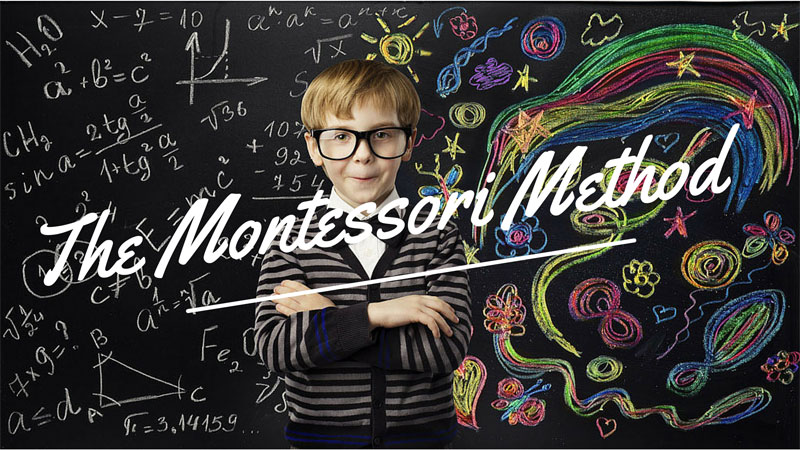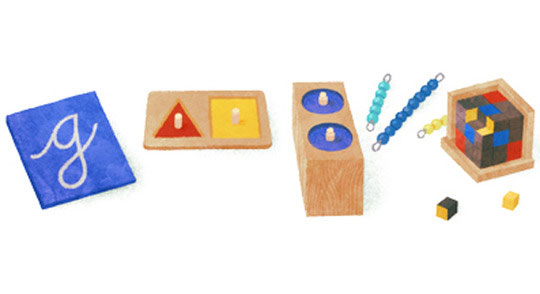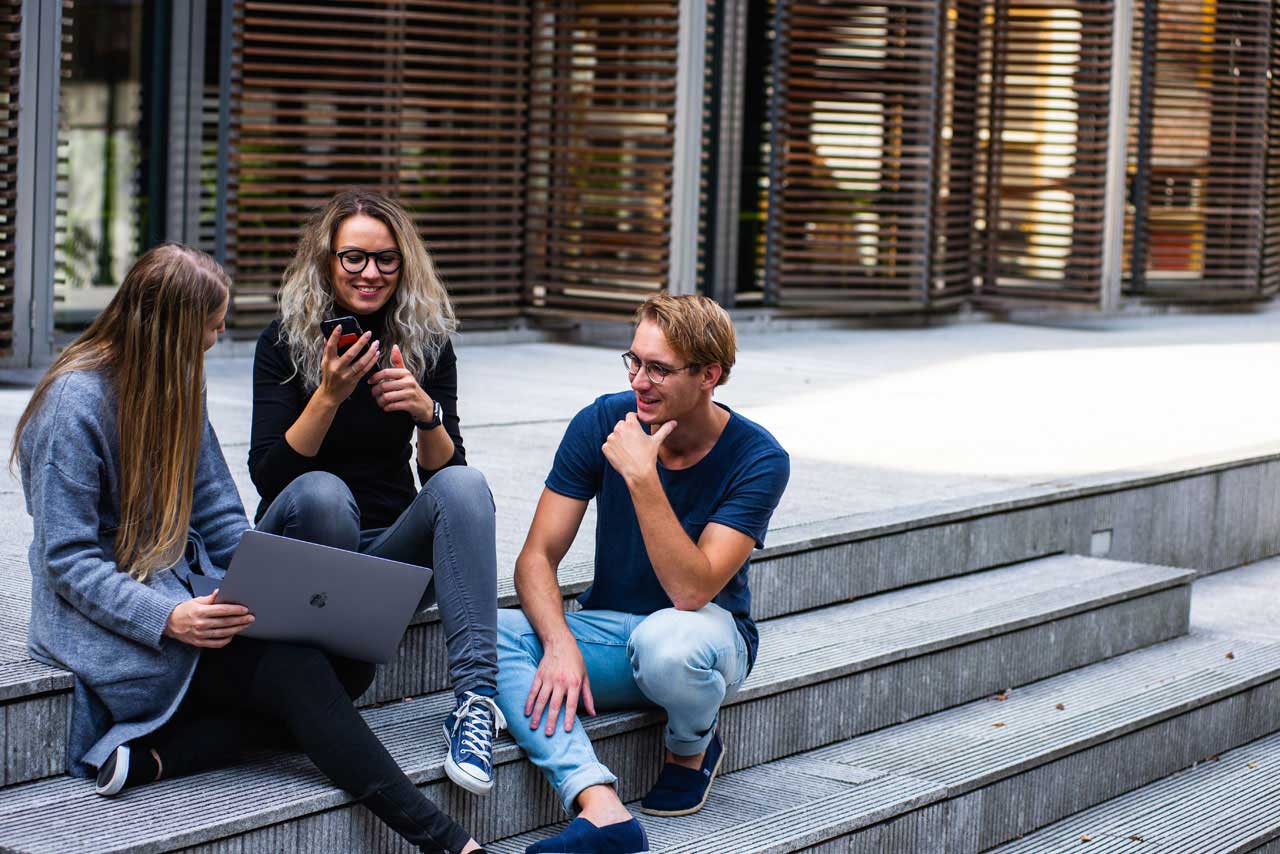Imagine an education system that trained students to be creative innovators and leaders without the use of grades, tests or homework. It actually exists and it’s called the Montessori Method.
The Montessori Method focuses on fostering a hands-on, self-paced, collaborative and enjoyable learning experience.
It teaches students to start small with their ideas, to build them through experimentation and to solve the problems that come up along the way with a sense of stimulating curiosity.
One of the most striking aspects of Montessori education is its similarities with the “fail fast, fail forward” do-it-yourself hacker mentality that has built many of the most innovative companies in Silicon Valley.
Even the popular innovation frameworks in the global start-up scene, like agile development and lean startup methodology, share similarities with the experimental process of Montessori learning.
The Self-Directed Learning Principles of the Montessori Mindset:

I believe that if we want to become better creators and innovators, we would be wise to study the self-directed learning principles of the Montessori Method.
Even though the Montessori Method is usually associated with the primary education of children, the seven pillars of self-directed learning that it is based on also apply to adults with the growth mindset who are highly creative, adaptable and self-motivated:
1. Independence
2. Responsibility
3. Self-Discipline
4. Leadership
5. Initiative
6. Academics
7. Lifelong Learning
Montessori and The Mindset of Lifelong Learning
With the rate of change in our world accelerating and all kinds of new opportunities being created by technological innovation, lifelong learning is now a necessity for keeping up-to-date, staying relevant and thriving.
Unfortunately, our public education system — with its narrow focus on rote learning and standardized testing — is failing students and jeopardizing the future prosperity of our society.
While this traditional form of education was suitable for training people for 20th-century industrial economy jobs in factories and corporate bureaucrats (jobs that are on the road to obsolescence), it does a poor job of instilling the self-directed initiative and flexibility to adapt knowledge and skills as new challenges arise.
In his popular TED Talk, Sir Ken Robinson points out the process of how our schools kill creativity (it’s the #1 TED Talk of all time so it clearly resonates with a lot of people).
He argues that to thrive in the post-industrial 21st-century economy, the most important skills are self-directed initiative, curiosity, and social intelligence. This is especially true for the most coveted high-paying jobs in our knowledge-based economy.
Most education reformers agree our public education system doesn’t do a great job of teaching students how to innovate. But the problem is that in a learning environment geared toward providing the right answers on standardized tests, failure is discouraged and conformity is encouraged.
This makes it difficult for individual students to follow their own trial-and-error process of learning from failure, which is required to develop their capacity to become creative innovators.
If you want to learn about the differences between teaching in Montessori and traditional schooling, I highly recommend watching this video:
Silicon Valley’s Innovation Secret: The Montessori Method
The Montessori Method may just be Silicon Valley’s best kept secret. The connections between the innovators who built Silicon Valley and Montessori education run deep.
I frequently hear people joking around about the “PayPal Mafia” and their remarkable influence in Silicon Valley (three former members of PayPal have become billionaires: Elon Musk of Tesla Motors, early Facebook venture capitalist Peter Thiel and Reid Hoffman of LinkedIn) but there may be a “Montessori Mafia” also, which Peter Sims argues in his excellent book Little Bets: How Breakthrough Ideas Emerge from Small Discoveries.
It turns out that a lot of Silicon Valley’s brightest minds and most successful innovators have a Montessori education in common. Here are just a few of the innovators that went through an early Montessori education:

Larry Page and Sergei Brin, the founders of Google were asked in a 2004 television interview with Barbara Walters if having parents who were college professors was a major factor behind their success. Instead, they credited their early Montessori education.
“We both went to Montessori school,” Mr. Page said, “and I think it was part of that training of not following rules and orders, and being self-motivated, questioning what’s going on in the world, doing things a little bit differently.”
What’s most remarkable about their success is that Google didn’t begin as a brilliant vision to make the world’s information accessible for everyone to search, but as a project to improve library searches at Stanford University.
As Peter Sims points out referencing Montessori: “most highly creative achievers don’t begin with brilliant ideas, they discover them.”
Page and Brin discovered that their initial idea of improved library search had broader application and eventually unlocked a revolutionary business model and an indispensable tool you probably use many times each day.
Jeff Bezos, the founder of Amazon went through Montessori as child and he has made experimentation and discovery an integral part of Amazon’s workplace culture. Bezos thanks his Montessori education for his enthusiasm for experimentation.
Talking about the risks of the experimental innovation process he acknowledged that most of their projects fail, “But every once in a while, you go down an alley and it opens up into this huge, broad avenue.”
Will Wright, the inventor of best-selling video games series “The Sims”, heaps similar praise on his Montessori education:
“Montessori taught me the joy of discovery, it’s all about learning on your own terms, rather than a teacher explaining stuff to you. SimCity comes right out of Montessori…”
Jimmy Wales, the founder of Wikipedia went to a Montessori-influenced school and like many of today’s tech elite he sends his children to a Montessori school. As you can imagine, Montessori schools and similarly structured Waldorf schools are very popular in Silicon Valley.
Even Thomas Edison, the American inventor and in some ways the Godfather of modern America’s innovation culture (I recommend watching this biography The Wizard of Menlo Park) founded his own Montessori School.
He said, “I like the Montessori method. It teaches through play. It makes learning a pleasure. It follows the natural instincts of the human being . . . The present system casts the brain into a mold. It does not encourage original thought or reasoning.”
Other prominent people who went through Montessori education include singers Taylor Swift and Beyonce Knowles, renowned celloist Yo-Yo Ma, legendary management guru Peter Drucker, actor George Clooney, illusionist David Blaine, author Helen Keller, techno-philosopher Jason Silva and English royals Prince William and Prince Harry.
While Montessori education may not be ideal for everyone, it provides a great philosophical blueprint for anyone to follow to become more curious innovators.
It teaches a process that is fundamental to innovation: that we must take action and start building things by taking small, achievable steps toward making our ideas happen.
When we are following a deep sense of self-directed experimentation and inquisitiveness this leads us to create new things that may have value to society.

Want to learn more about the Montessori Method?
If you want to learn more about Montessori, I’d recommend watching the documentary below about its founder Maria Montessori.
Her biography is an inspiring story of a modern woman challenging the orthodoxy of her time and through sheer determination overcoming the enormous social barriers erected to prevent her from reaching her full potential.
Maria became one of the first women to practice medicine in Italy and was one of the most prominent voices openly challenging the prejudice and extremist ideology inherent in all forms of authoritarianism.
She would eventually be driven from her homeland during the reign of fascist dictator Benito Mussolini who closed down the Montessori schools in Italy.
All of Maria Montessori’s books are in the public domain. If you want to learn more, her best-known books are The Montessori Method, Dr. Montessori’s Own Handbook and The Absorbent Mind.
I’ve been working to apply many of Maria Montessori’s ideas in our online programs in my Flow Experience Design training.
In a fast-changing world, self-directed learning and creativity-based education will teach the next generation skills that change the world.





A Montessori classroom is a thoughtfully designed environment to offer children opportunities to develop their own capabilities. Each classroom is filled with developmentally appropriate activities that encourage children to interact with specific learning materials, as well as to work cooperatively with others.
The combination of independent, partner, small-group, and whole-group lessons and activities introduces children to different learning relationships and interpersonal dynamics—valuable skills for their interactions outside the classroom.
Thank you for compiling such thorough information about Dr. Montessori’s work! I work with parents as a Parent Coach so will definitely share your article with my parents.
Kyle, thank you for posting this information about Montessori. I believe this is probably the best system in the world for education. I trained to be a Montessori Directress and was able to visit a school in Rome to see first hand how the system works in Italy. This is their public school system in Italy. It is my dream to help increase the number of schools here in the US and to get people back to the original vision of Maria Montessori which was to help students with disabilities. Most schools here in the US are hesitant to accept special needs students.
Thank you for promoting Montessori.
Thank you for writing this! I’m going to read the books you mentioned at the end and learn more about Maria Montessori’s philosophy and learning methods.
Awesome! Her books are all thought-provoking education treaties.
This article was really useful as I am looking at applying to work in a motessori school and was looking for more information on the theories behind the system. I think I did not give it a fair look before because of some of the reputations I had heard before. Anyways I am excited to learn more and thank you for this well-written introduction.
Thanks for the comment Jennie! People definitely have strong opinions for and against Montessori education. The quality of Montessori schools varies a lot and unless the teachers at the school are highly trained in Maria Montessori’s philosophy, they may be only using the Montessori name as a marketing tool.
Kyle,
Thank you for shedding light on Dr. Montessori great work and her educational method.
I have made it my mission to share this knowledge with families all over the world, bringing Montessori principles into homes. Believing that Montessori education is an ‘Aid to Life’ and that parents are needing more support today than ever to let children learn at their own pace (as mentioned by Gretchen). I will be sharing this article with the families I work with.
Did you attend a Montessori school or do you have children that do? I’d love to know how you came to discover it.
He Jeanne-Marie, it sounds like you’ve found your calling!
I originally studied the work of John Holt and his unschooling philosophy about how people naturally learn beyond the walls of formal schooling. His approach to learning by doing made much more sense to me than what I was taught to think about learning in school.
I’ve always admired the Montessori Model and in the last couple of months I was inspired to study Maria Montessori’s philosophy for a new digital academy I’ve been designing called Social Creators. I wanted to understand how different education theorists thought about methods to teach people to be more playful, risk-taking and creative.
I think Montessori is one of the scholars who has some of the best ideas for revolutionizing education. She was way ahead of her time. I think her ideas about education are even better suited for the 21st century than her own age.
Great post, Kyle. I am incorporating a section on Montessori in my next book? It is on integrative development, which brings together adult development and organization development into a unified theory and process. I want to revolutionize the way in which people learn, develop and change at work.
I am seeking case studies where people have used elements of Montessori’s approach in the workplace (or found other ways to turn the usual paradigm on its head!). Please reach out if you know of anyone. It could be you!
From my experience, the organizational structure and workplace environments of successful startups usually apply many elements that are similar to Montessori’s philosophy. I would look at the workplaces of these kinds of emerging startup organizations.
What stands out for me as most important is a supportive team environment that encourages collaboration, experimentation and risk-taking. The best entrepreneurs are those who can recognize enthusiastic, creative people who are self-directed learners and hire them for their teams, because that’s the only way to be a high performer in a rapidly changing world.
Beautiful article with great resources!
Thank you for such an amazing and informational post on Montessori schooling. I have been very interested in learning more and how to implement this technique at home!
I am the mom to a 7th grade boy who struggles with traditional schooling. Are there Montessori high schools in the SF bay area?
The San Francisco Bay Area has a high density of Montessori schools. Alsion Montessori sounds like a good high school.
Hi Kyle – thanks for a great article. I’m Montessori trained but this is the first time I’ve come across the film on Montessori’s life. You may be interested in the following Ted Talk http://www.ted.com/speakers/sugata_mitra – I had the honour of interviewing him for the Montessori International magazine and he’s a real inspiration.
Thanks for sharing, I’ve watched all of Sugata Mitra’s talks. His technology-inspired unschooling experiments are fascinating. It’s amazing how children can learn together without any authority figures to tell them what to do.
Hello Kyle, I found your article to be timely and provocative. I am a Montessori teacher. I teach upper elementary (grades 4-6). I find it more and more challenging to help kids explore curiosity as many of them have no idea what they are even curious about anymore! Their days are so scheduled with after school programs and sports they are left with very little free time to explore and just think and wonder. I have parents pressuring me to give the “rote” type of homework that keeps their child “busy.” But I persist because I believe in the method and philosophy! I allow my kids to get bored and to figure out things in their boredom. It can be so hard to do in this age of major pressure to be doing something all the time. Thank you for reminding me of why I do what I do!
How tragic that many kids don’t know what they are curious about. The way some parents schedule their children’s entire lives and put so much pressure on them at a young age to succeed is a crime. I worry that these passion-less kids will turn into anxious, self-loathing adults who only care about their status and climbing the corporate ladder. We need more great teachers like you!
Thank you for verbalizing what I am also experiencing in my classroom, Gretchen. My greatest gift is freedom to explore and yet I find I am so burdened with the set pathways I must ‘teach’ that I am constantly conflicted. It is good to be reminded again and again and again why we were drawn to be Montessori teachers. I wish my parent community were as educated about the goals and principles so that I wasn’t fighting a battle on two fronts. We do need each other for support, don’t we!
Fantastic !
This is the best presentation of Montessori I have ever seen! Thanks?
Thank you!
Hi
Well compiled information 🙂
Thank you, Kyle. It was a very compelling way to describe The Montessori Method. I will be exploring this article with my students. ¡Good luck on your project!
Thank you!